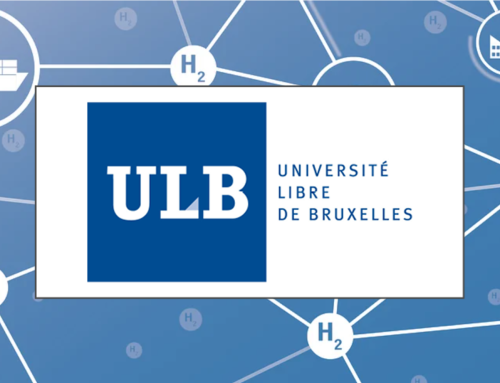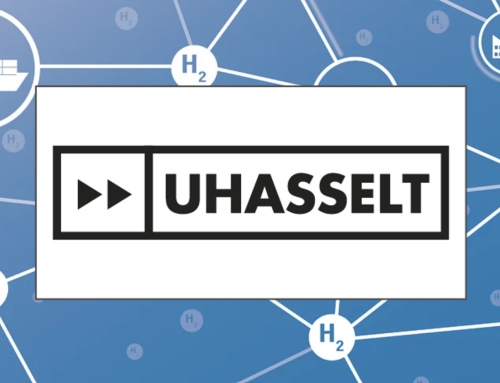
UCLouvain: Institute of Mechanics, Materials and Civil Engineering | Materials and Processes Engineering (IMAP)
University of Louvain
General expertise of the research group
The researches of the IMAP pole aim at (1) improving the fundamental knowledge in the field of process engineering and inorganic materials. Application areas include in particular the effluent treatment, development of lightweight structural inorganic materials, process optimization, the study of the mechanical properties and the durability of inorganic materials, their manufacturing and shaping processes, the recycling and refining of metals, the processes of organic chemistry and petrochemistry, excluding polymers ; (2) creating an integrated research methodology to address the issue of sustainable development as described above, based on the expertise of all members of the pole in order to implement the life cycle engineering, and proposing strategies to select materials and processes.
Specific hydrogen- related expertise & research topics
- Prof. J. Proost’s group focuses on the intensification of electrochemical processes, in particular the development of new reactors and electrodes for green hydrogen, green ammonia and green cement production.
- Prof. P. Jacques’ research activities concern among others (i) the study and the development of advanced metallic solutions (bulk, coatings, architectured structures), particularly for hydrogen storage and transport (also at cryogenic temperatures (down to 4K)); (ii) the characterisation, understanding and control of the interactions between hydrogen and metallic materials, particularly the hydrogen embrittlement phenomena; (iii) the analysis of the mechanical behaviour of metallic materials in presence of hydrogen.
- Prof. De Wilde’s group focuses on the (i) high-efficiency Steam Methane Reforming (SMR) with focus on the development of novel technologies for reduction of CO2 emissions, improved heat transfer and reduced pressure drop; (ii) auto-thermal chemical looping reforming and bi-reforming for facilitating CO2 capture with focus on reactor design and catalyst selection and evaluation; (iii) chemical storage of clean power using green energy and focusing on novel technologies for methanation and transient operation and integrated CO2 capture and conversion; (iv) electrification of SMR with focus on high-efficiency reactors and electrical heat supply systems.
- Prof. T. Pardoen’s research concern the thermomechanical resistance of materials and systems used for the hydrogen production and storage, including novel concepts of structural laminated metal vessels.
Available equipment/tools:
- Heat transfer-pressure drop rig for measurements with pellets or structured reactors used for hydrogen production- with 6-zone electrically heated furnace and detailed tube skin and gas temperature profile measurements and with air in wide flow rate range, up to commercially relevant.
- Kinetics testing lab for studying steam methane reforming and the inverse reaction, methanation- using specifically designed micro-packed bed reactor allowing studying intrinsic kinetics and on-line GC and MS.
- Kinetics testing lab with micro-electrobalance reactor to study catalyst deactivation and allowing transient measurements of catalyst weight and gas exit composition.
- Unique world class SMR pilot plant (safety certified) for hydrogen/syngas production with electrically heated furnace, electrical start-up boiler and recuperative steam generator- 4m tube length (30% of commercial), commercial tube diameter, 30% commercial capacity, max gas exit temperature of 870°C, max operating pressure of 28 barg- fully equipped with measurements of tube skin and gas temperature profiles, pressure drop, flow rates, and exit gas composition (on-line GC and MS) and with PLCs/logic- NG desulfurizer and on-line sulfur slip measurement.
- Fully certified pilote-scale 6kW alkaline water electrolyser, modularly designed for 4-32 cells using 300 cm2 electrodes
- Different single cell lab-scale water electrolysers in flow-through and flow-by mode, with electrode sizes ranging from 4-10 cm2, including high-resolution in-situ electrochemical diagnostics
- Processing (melting, casting, shaping, thermomechanical treatment, 3D printing) of metallic materials;
- Materials characterization tools (microscopy, tomography, thermal analysis, chemical analysis);
- Set-ups for mechanical testing (deformation and fracture) at temperature ranging from 4K to 1500K.
Participating in FL/B/EU funded projects with H2 related research:
- EU project “NEXTAEC” : Materials for Next Generation Alkaline Electrolyzers. Project running from 04/2020-03/2024 under EU/H2020/NMBP (Call Industrial Sustainability), with a total budget of 4.4 M€ (570 k€ for UCLouvain) ; Prof. J. Proost is WPleader for 3D electrode development and upscaling.
- EU Project “ENDURE” : Alkaline electrolysers with enhanced durability. Project running from 01/2024-12/2027 under EU-HORIZON-JTI-Clean Hydrogen Partnership, with a total budget of 2.5 M€ (450 k€ for UCLouvain) ; Prof. J. Proost is WP leader on design and fabrication of 3D structured laterally graded flow-engineered monolithic electrodes.
- EU project “KICStartH2” : Accelerating Hydrogen Uptake in Europe. Project running from 07/2022-06/2024 under the European Institute of Innovation and Technology (EIT) and its Knowledge and Innovation Communities (KICs), in particular the HEI Initiative on Innovation Capacity Building for Higher Education, with a total budget of 1.1 M€(220 k€for UCLouvain). Prof. J. Proost is WP leader on Dissemination Plan and Public Relations, and contributes directly to the Business Module Content Development.
- EU/Regional Walloon project “HeCO2” : Production of decarbonated hydrogen by water electrolysis. Project running from 07/2022-06/2026, partly funded also by the EU Recovery and Resilience Plan, with a total budget of 10 M€ (550 k€ for UCLouvain). Prof. J. Proost is WP leader on CFD modeling of single and multiphase flow on electrolyser cell and stack level.
- Belgian Federal Research project “MuSE” : Molecules at Sea. Project under the call Energy Transition Fund, running from 11/2023-10/2026 with a total budget of 1.7 M€ (300 k€ for UCLouvain). Prof. J. Proost is WP leader on hydrogen production from seawater electrolysis.
- Belgian Federal project “BE-HyFE” : Belgian Hydrogen Fundamental Expertise. 2 joint PhD UCLouvain– UGent (2021– 2025) : “Controlling Hydrogen Embrittlement of High Strength Steels” (Prof. P. Jacques) and “Process implications of electrifying NH3 production” (Prof. J. Proost).
- Regional Walloon project “Faraday” : Integrated electrochemical reactor for the production of H2/O2/CO2 for CCU applications. Project under GreenWin call 31, running from 11/2021-10/2025 with a total budget of 4.0 M€ (490 k€ for UCLouvain). Prof. J. Proost is WP leader on the design and testing of a new electrolyzer-based process for cement clinker production.
- Project Win2Wal “Cryostress” (2021-2025, 1.400.000 Euro). “Compréhension et modélisation des comportements métallurgiques et mécaniques des aciers inoxydables pour le stockage de l’hydrogène liquéfié” (project with CRM and Aperam)
- ERC Advanced Grant HAPI (2023- 2028) with the final objective to develop a new class of metal systems with extreme fracture toughness towards pressure vessel applications.
- FNRS PhD grant (Hannah Yang) (2022-2026). “Alloy design and assessment of the positive effect of hydrogen as an alloying element in austenitic steels”
- FNRS Research project grant (2022-2026). “Hydrogen embrittlement-activated toughening of architectured steels”
- Belgian Federal project “ReadHy” (Energy Transition Fund). “Development of an innovative testing method towards a better understanding of hydrogen-metal interactions to secure CRM-UGent-UCLouvain).
Main relevant publications
- A. Dechany, K. Van Geem and J. Proost, “Process implications of electrifying ammonia production”, Current Opinion in Chemical Engineering (I.F. 6,6) 40 (2023) 100955 ● F. Rocha, R. Delmelle, C. Georgiadis and J. Proost, “Electrochemical performance enhancement of 3-D printed electrodes tailored for enhanced gas evacuation during alkaline water electrolysis”, Advanced Energy Materials (I.F. 29,7) 10 (2022) 107648
- F. Rocha, R. Delmelle, C. Georgiadis and J. Proost, “Effect of pore size and electrolyte flow rate on the bubble removal efficiency of 3D pure Ni foam electrodes during alkaline water electrolysis”, Journal of Environmental Chemical Engineering (I.F. 7,7), 10 (2022) 107648
- F. Rocha, Q. de Radiguès, G. Thunis and J. Proost, “Pulsed water electrolysis : a review”, Electrochimica Acta (I.F. 6,9), 377 (2021) 138052
- F. Rocha and J. Proost, “Discriminating between the effect of pulse width and duty cycle on the hydrogen generation performance of 3-D electrodes during pulsed water electrolysis”, International Journal of Hydrogen Energy (I.F. 7,1), 46 (2021) 28925-28935
- J. Proost, “Critical assessment of the production scale required for fossil parity of green electrolytic hydrogen”, International Journal of Hydrogen Energy (I.F. 7,1), 45 (2020) 17067-17075
- A. Delvaux, G. Lumbeeck, H. Idrissi and J. Proost, “Effect of microstructure and internal stress on hydrogen absorption into Ni thin film electrodes during alkaline water electrolysis”, Electrochimica Acta (I.F. 6,9) 340, 135970 (2020)
- Z.Chehade, C.Mansilla, P. Lucchese, S. Hilliard and J. Proost, “Review and analysis of demonstration projects on Power-to-X pathways in the world”, International Journal of Hydrogen Energy (I.F. 7,1) 44 (2019) 27637-2765
- J. Proost and A. Delvaux, “In-situ monitoring of hydrogen absorption into Ni thin film electrodes during alkaline water electrolysis”, Electrochimica Acta (I.F. 6,9) 322, 134752 (2019)
- J. Proost, “State-of-the art CAPEX data for water electrolysers, and their impact on renewable hydrogen price settings”, International Journal of Hydrogen Energy (I.F. 7,1) 44 (2019) 4406-4413
- R.Poulain, A. Klein and J. Proost, “Electro-catalytic properties of (100), (110) and (111) oriented NiO thin films towards the oxygen evolution reaction”, Journal of Physical Chemistry C (I.F. 3,7) 122 (2018) 22252–22263
- A. Delvaux, Q. Van Overmeere, R. Poulain, and J. Proost, “Enhanced oxygen evolution from (de-)alloyed nickel thin film electrodes”, Journal of the Electrochemical Society (I.F. 4,3)164 (2017) F1196-F1203
- Q. de Radiguès, P.-Y. Sévar, R. Santoro, F. Van Wonterghem and J. Proost, “Electrochemical characterization of mass transport in porous electrodes”, Industrial & Engineering Chemistry Research (I.F. 4,3) 51 (2012) 14229–14235
- Catalyst-enhanced autothermal chemical looping reforming: Intrinsic SMR kinetics and numerical simulation Z He, F Minette, J De Wilde Energy Conversion and Management 293, 117525, 2023
- Structured catalyst reactor system for steam methane reforming S Ratan, W Blasko, W Spieker, F Minette, J De Wilde PTQ Magazine, 2023
- Structured ZoneFlow™-Bayonet steam reforming reactor for reduced firing and steam export: pressure drop and heat transfer modelling and evaluation of the reactor performance F Minette, LC de Almeida, J Feinstein, J De Wilde Chemical Engineering Journal Advances 10, 100258, 2022
- Numerical simulation of commercial scale autothermal chemical looping reforming and bi-reforming for syngas production Z He, J De Wilde Chemical Engineering Journal 417, 128088, 2021
- Pressure drop and heat transfer of ZoneFlowTM structured catalytic reactors and reference pellets for Steam Methane Reforming F Minette, LC de Almeida, S Ratan, J De Wilde Chemical Engineering Journal 417, 128080, 2021
- Multi-scale modeling and simulation of low-pressure methane bi-reforming using structured catalytic reactors F Minette, J De Wilde Chemical Engineering Journal 407, 127218, 2021
- Intrinsic kinetics of steam methane reforming on a thin, nanostructured and adherent Ni coating F Minette, M Lugo-Pimentel, D Modroukas, AW Davis, R Gill, MJ Castaldi, J De Wilde Applied Catalysis B: Environmental 238, 184-197, 2018
- Antoine Hilhorst, Pascal J. Jacques, Thomas Pardoen, Towards the best strength, ductility, and toughness combination: High entropy alloys are excellent, stainless steels are exceptional, Acta Materialia 260 (2023) 119280
- M. Mandy, C. Georges, T. Sturel, P. Drillet, P.J. Jacques, On the analysis of the simultaneous uptake and desorption of different isotopes of gaseous hydrogen by advanced high strength steels, Scripta Materialia 161 (2019) 84–87
- Hilhorst, A., Pardoen, T., Jacques, P.J., Optimization of the essential work of fracture method for characterization of the fracture resistance of metallic sheets, Engineering Fracture Mechanics, 2022, 268, 108442
Contact persons
Prof. Joris Proost
joris.proost@uclouvain.be
Tel. +32 10 47 25 54
Prof. Pascal Jacques
pascal.jacques@uclouvain.be
Prof. Juray De Wilde
juray.dewilde@uclouvain.be
UCLouvain | Materials and Processes Engineering (IMAP)
Réaumur
Place Sainte Barbe 2, mailbox L5.02.02,
1348, Louvain-la-Neuve




